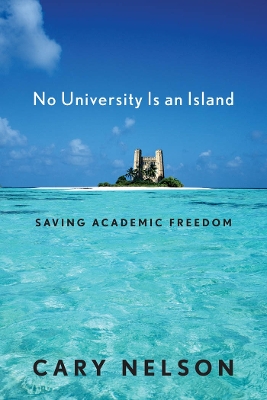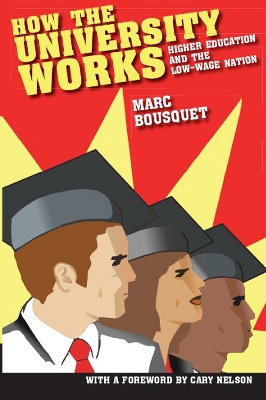Cultural Front
2 total works
The modern university is sustained by academic freedom; it guarantees higher education’s independence, its quality, and its success in educating students. The need to uphold those values would seem obvious. Yet the university is presently under siege from all corners; workers are being exploited with paltry salaries for full-time work, politics and profit rather than intellectual freedom govern decision-making, and professors are being monitored for the topics they teach.
No University Is an Island offers a comprehensive account of the social, political, and cultural forces undermining academic freedom. At once witty and devastating, it confronts these threats with exceptional frankness, then offers a prescription for higher education’s renewal. In an insider’s account of how the primary organization for faculty members nationwide has fought the culture wars, Cary Nelson, the current President of the American Association of University Professors, unveils struggles over governance and unionization and the increasing corporatization of higher education. Peppered throughout with previously unreported, and sometimes incendiary, higher education anecdotes, Nelson is at his flame-throwing best. will be the benchmark against which we measure the current definitive struggle for academic freedom.
The book calls on higher education’s advocates of both the Left and the Right to temper conviction with tolerance and focus on higher education’s real injustices. Nelson demands we stop denying teachers, student workers, and other employees a living wage and basic rights. He urges unions to take up the larger cause of justice. And he challenges his own and other academic organizations to embrace greater democracy. With broad and crucial implications for the future, No University Is an Island will be the benchmark against which we measure the current definitive struggle for academic freedom.
Uncovers the labor exploitation occurring in universities across the country
As much as we think we know about the modern university, very little has been said about what it's like to work there. Instead of the high-wage, high-profit world of knowledge work, most campus employees—including the vast majority of faculty—really work in the low-wage, low-profit sphere of the service economy. Tenure-track positions are at an all-time low, with adjuncts and graduate students teaching the majority of courses. This super-exploited corps of disposable workers commonly earn fewer than $16,000 annually, without benefits, teaching as many as eight classes per year. Even undergraduates are being exploited as a low-cost, disposable workforce.
Marc Bousquet, a major figure in the academic labor movement, exposes the seamy underbelly of higher education—a world where faculty, graduate students, and undergraduates work long hours for fast-food wages. Assessing the costs of higher education's corporatization on faculty and students at every level, How the University Works is urgent reading for anyone interested in the fate of the university.

